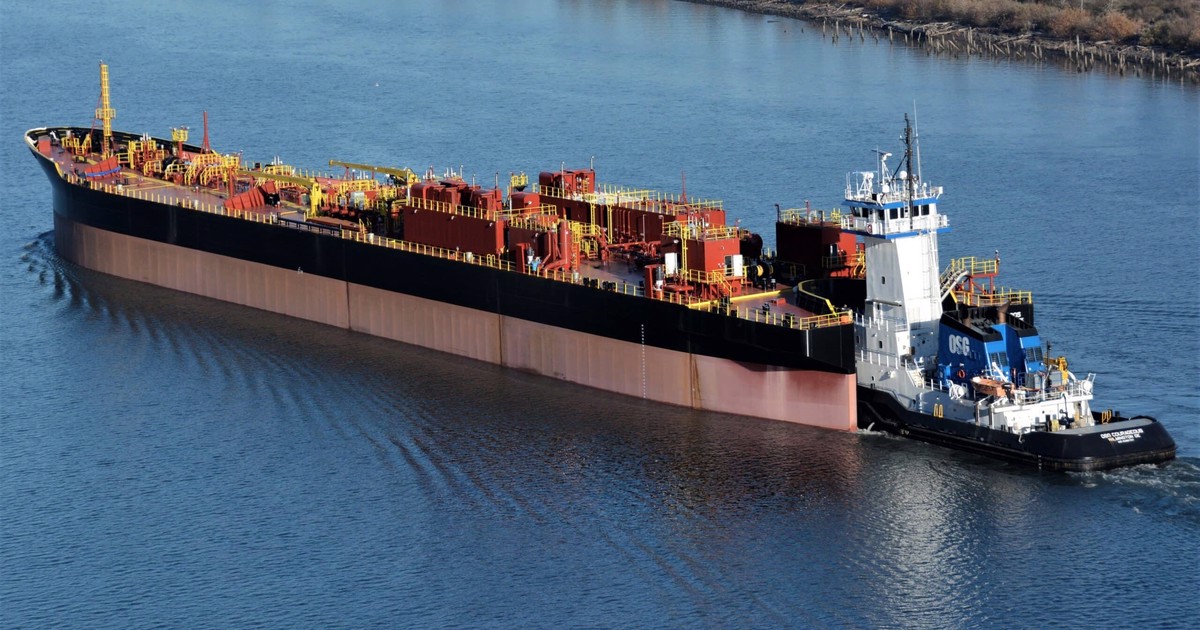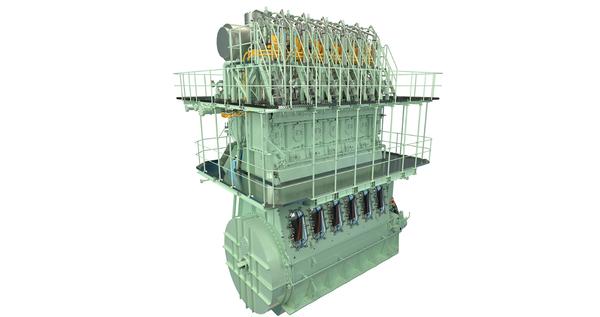Overseas Shipholding Group to build LCO2 carrier for CCS supply chain
The US Department of Energy awarded tanker operator OSG a $3 million grant to design and develop an articulated tug and barge (ATB) to transport liquefied carbon dioxide (LCO2).
 PHOTO: An articulated tug and barge operated by US-based Overseas Shipholding Group. Facebook of OSG
PHOTO: An articulated tug and barge operated by US-based Overseas Shipholding Group. Facebook of OSG
An ATB is a vessel combining a tugboat and a barge. It has a connection between the two, which enables the vessel to provide better mobility and flexibility than conventional towed barges. It is mainly used for transporting bulk cargo.
The carrier is intended to transport CO2 captured from power plants and other industries across the state of Florida, US to underground storage sites in the northern Gulf of Mexico for permanent storage.
The LCO2 carrier is part of a larger carbon capture and storage (CCS) project spearheaded by OSG. The project will also include a temporary CO2 storage facility at Port Tampa Bay for captured CO2, according to OSG.
The storage facility will be able to receive, store and process up to 2 million mt/year of CO2, before it is transported for underground storage.
“Transporting liquified CO2 is a natural next step into an exciting emerging market, consistent with OSG’s expertise with liquid cargoes,” Sam Norton, chief executive of OSG said.
Growing role for shipping in CCS
Maritime experts have indicated that shipping can play a pivotal role in the large-scale transport of CO2.
Shipping offers “safe, reliable and flexible transportation well-suited to shorter distances and low to medium volumes,” according to Erik Mathias Sørhaug, DNV’s business development director CO2 shipping.
“The State of Florida presents a unique opportunity for the transportation of liquified CO2,” Jeff Williams, OSG’s director of CO2 transport solutions said. “Florida has the country’s fourth largest CO2 emissions from power generation and industrial facilities but has no pipeline system capable of transporting captured CO2 out of state.”
In addition to infrastructure limitations, CO2 transport company ECOnnect Energy has highlighted that shipping is more economical than pipelines for transporting CO2 due to the high costs associated with maintaining stable temperatures and pressures over long distances.
Shipping smaller volumes of CO2 over longer distances is more economical than a pipeline, ECOnnect Energy asserts. Shipping offers a "high degree of flexibility and can be deployed quickly and without the environmental impact of building conventional marine infrastructure," it has noted.
By Konica Bhatt
Please get in touch with comments or additional info to news@engine.online






